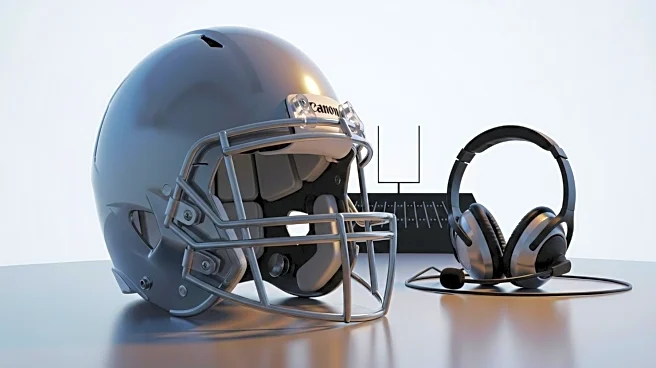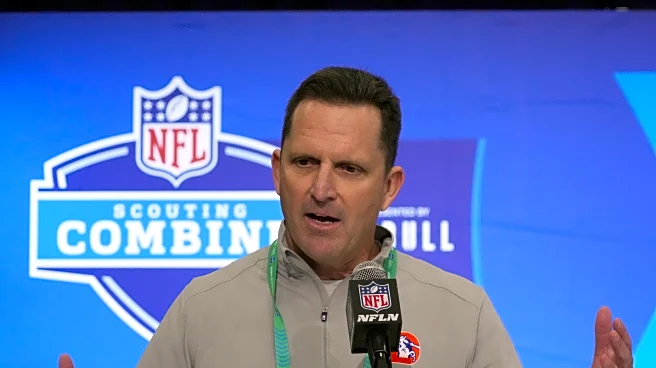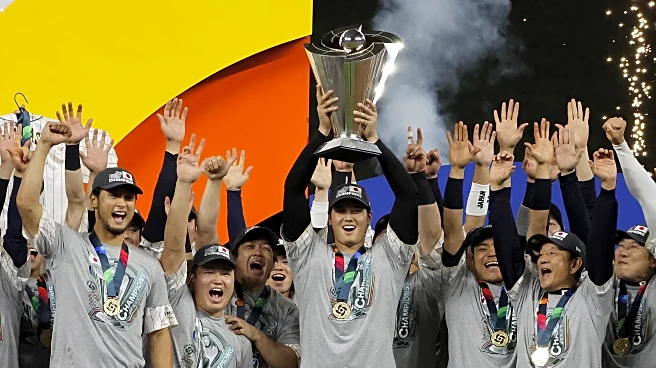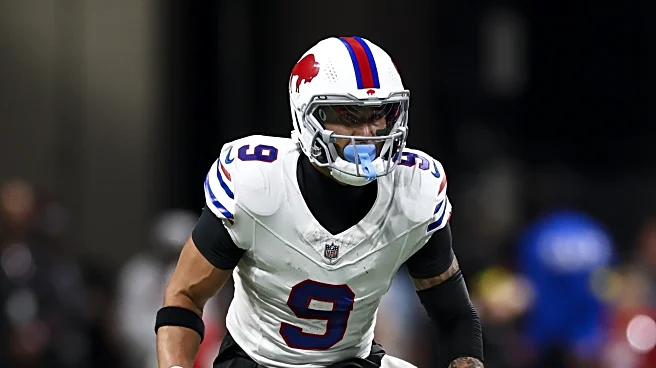What is the story about?
What's Happening?
Tom Brady, a minority owner of the Las Vegas Raiders and a Fox commentator, was seen in the Raiders' coaches booth during a game against the Los Angeles Chargers. Brady's presence, wearing a headset, was reported by ESPN's Peter Schrager as him acting as a resource for the team's coaching staff. This situation has sparked questions about Brady's involvement in the Raiders' football operations and whether his dual roles could lead to a conflict of interest. The NFL has relaxed rules this year, allowing Brady to participate in production meetings virtually and be on the field before games. However, concerns remain about the potential for Brady to relay information from his role at Fox to the Raiders' coaching staff.
Why It's Important?
The situation highlights potential conflicts of interest within the NFL, as Brady's dual roles could allow him access to sensitive information about other teams. This raises questions about the integrity of the league and whether such arrangements should be permitted. Former players and commentators have expressed discomfort with Brady's involvement, suggesting it could undermine trust in the league's operations. The NFL's decision to allow Brady to maintain both roles without clear boundaries may set a precedent for future ownership and broadcasting arrangements, impacting how the league manages conflicts of interest.
What's Next?
The NFL may face pressure to reevaluate its policies regarding ownership and broadcasting roles to prevent conflicts of interest. Stakeholders, including team owners and broadcasters, might push for clearer guidelines to ensure fair play and maintain the league's integrity. Discussions within the league could lead to changes in how such dual roles are managed, potentially requiring individuals to choose between ownership and broadcasting positions.
Beyond the Headlines
This situation could lead to broader discussions about the ethical implications of dual roles in sports management and broadcasting. It may prompt the NFL to consider the long-term impact of such arrangements on the league's reputation and the trust of its fans. The case also highlights the need for transparency and accountability in sports governance, potentially influencing how other leagues handle similar issues.
















